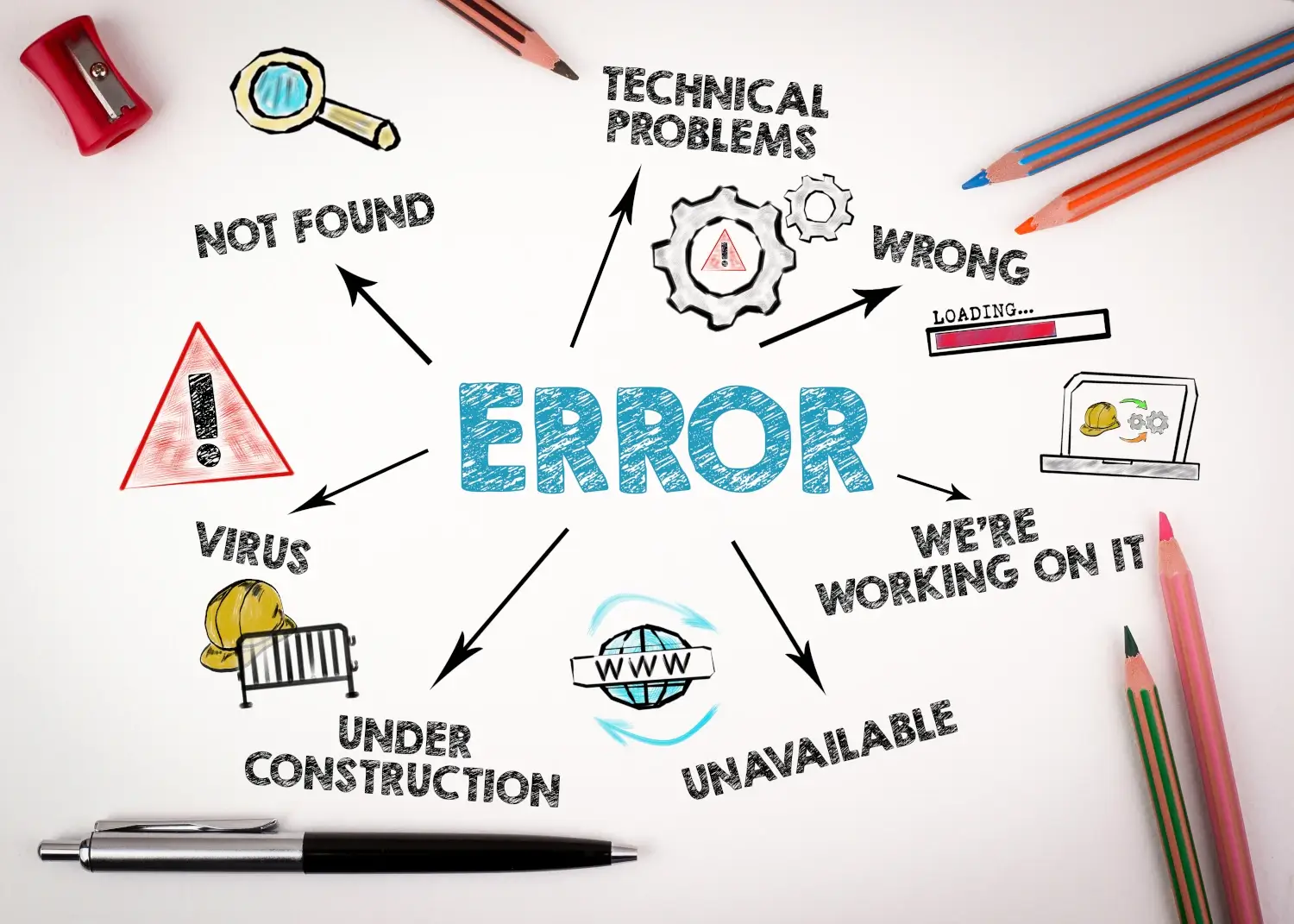Warren Buffet, the well-known billionaire entrepreneur, is credited with saying:
Building and preserving your online reputation is a significant investment that takes time and effort. You need to be doing the things that build the online equity you need to rank higher in search engines. Things like optimizing your website, managing your online customer reviews, asking for more reviews, managing and building your online citations, paying attention to online security for your website, building cross-linking to your website, and so forth. All these activities are an essential part of building your online reputation. They lead to a strengthened position of trust for your business in the eyes of prospective customers and will drive traffic to your website.

All of this effort is to drive people to your website; to interact with YOU. However, if visitors to your site have one negative experience, that can spoil all of the other great things on your site. If the user encounters a problem, you can ruin all that equity in a split second.
Consider these four potentially negative experiences that a prospect might encounter when they attempt to interact with you online. You have probably experienced all 4 things at some point in your own online experience. Think about how you felt when this happened to you:
At a minimum, we recommend that you verify that your NAP is correct and consistent across the following sites:

- A prospect finds your company in a Google search result, but they are unable to get more information about you because you don't have a website listed;
- A person clicks on a link to your site, and your website is non-responsive or won't come up;
- Once they are on your site, a visitor reads about your business, and there are spelling or grammatical errors;
- A visitor on clicks on a link or image on your website, and that link gives them an error message.
These four scenarios are examples of how trust in your company can be damaged in an instant if you are not paying attention to them. You've worked hard to get that traffic coming to you. As Buffet said, "If you think about that, you'll do things differently." Let's look at each one and what you can do to protect against them.
-
Your Own Website

Your own website is a must. It is just one of those things that prospects expect to find in a trustworthy company. Having your own website is a trust signal to prospects that you are legit, stable, and professional. Companies without established identities lack trust. Even if most of your marketing and business transactions happen outside of your website, consumers still expect you to have one and will shy away from companies that don't have this essential piece of an expected company identity.
It is not enough to rely on social media and other online resources to tell your story. Prospects love to learn about you from review sites and online profiles. However, if they like what they see on these platforms, they will often want to learn more by visiting your website to get to know you better before reaching out. Once they are on your website, you can begin to tell your story and make a case for why they should do business with you. It is important to note that a website does not have to be complicated or expensive.
Once you have your website online, be sure that it is listed correctly in any online profiles like BBB, Google, Facebook, Yelp, etc...so that people who discover you on those sites can get to your website easily.
See also: Do I Really Need a Website
-
Website Availability

The term 'uptime' refers to the availability of your website to be accessed by users. Your site being available 24/7 does not necessarily BUILD trust since that is simply what is expected. However, if your site is NOT available when a user tries to access it, that can lead to a serious hit to trust. Your website being available and accessible is not a luxury. It is essential.
Of the four things mentioned, it is the one in which you have the least amount of direct control. You are dependent on your site's hosting service to make sure that your website is available at all times. Make sure that you are using a reputable web hosting partner. Have them provide you with uptime statistics for your site. Although no provider can guarantee 100% uptime, they should be able to give you reliable service that makes you available nearly all of the time.
A related concept to uptime is RESPONSE TIME. Your website may be up and available, but if it is too slow, you may also negatively impact your hard-earned reputation. The speed at which your pages load is impacted by a lot of factors. Of course, if the end-user is experiencing slowness due to their connection, there is very little you can do. You can, however, make sure you are doing all you can on your end to make sure that your pages load quickly to give a smooth experience to your users. If you notice slowness on your website, you should contact your webmaster to isolate and fix the issue.
See also: Uptime Matters
Both Uptime and Response Time are essential in your search engine rankings as well. Just like a human user, if Google's crawlers visit your site and find it is unavailable or slow, they will certainly make a note of that, which could impact your visibility in their search results.
-
Spelling and Grammar

Spelling and grammar is a place where you have complete control. The content of your website is a reflection of your business. Make sure that the messaging on your website is constructed with correct spelling and grammar. You can lose prospective customers when they feel like you don't pay attention to these small details. Proofread the copy on your site. Have others check it for you. This is a very simple thing that can be the difference in keeping visitors on your site long enough to draw them in.
Maybe an English degree is not necessary for your business, but correct spelling and grammar are essential for your website. If you struggle with spelling, make sure you have someone you trust proof all the text on your pages and ensure it is grammatically correct and spelling error-free. Spelling errors not only turn away prospects, but Google and other web crawlers also encounter them. If they identify errors, it could affect your search rankings as well.
See also: The Cost of Typos
-
Links That Work

As a user navigates your website, they expect it to work. Anytime they do something on your site (scroll, click, etc...), they just expect it to work. The tolerance for broken functionality is low. Users will go somewhere else if the links they follow on your site are broken. If you post a link anywhere on your website, you need to make sure it works and does what you want it to. Keep in mind that the links to other pages on your site, as well as links to pages outside your site can and do change. Just because the links on your site worked a year ago when you set them all up does not necessarily mean they work today. It is something you need to be constantly monitoring. You want to know about (and fix) any broken links BEFORE a visitor finds them.
See also: Consequences of Broken Links
GreenCheck Helps
Managing your online reputation has a lot of moving parts. It can be overwhelming sometimes when you are focused on the things you know and do best. GreenCheck Results is excited to help you identify and manage these things so that you can preserve the trust you have worked so hard to build.
Your GreenCheck subscription is a valuable tool in helping to build trust in your business. Looking after the details covered above will help you preserve online trust in your business. GreenCheck checks your website for you and gives you timely and meaningful information. GreenCheck scans your site regularly for response time, uptime, spelling, and broken links. Each month, you get an email with the state of your website, all at no additional cost to you. If you do not have a website of your own, GreenCheck can help there too. GreenCheck also checks your online reputation such as your SSL certificate, customer reviews, keywords, and online citations. Monthly summaries for these are also sent via email. You can sign in to your GreenCheck Account anytime for the latest check results for your website.


